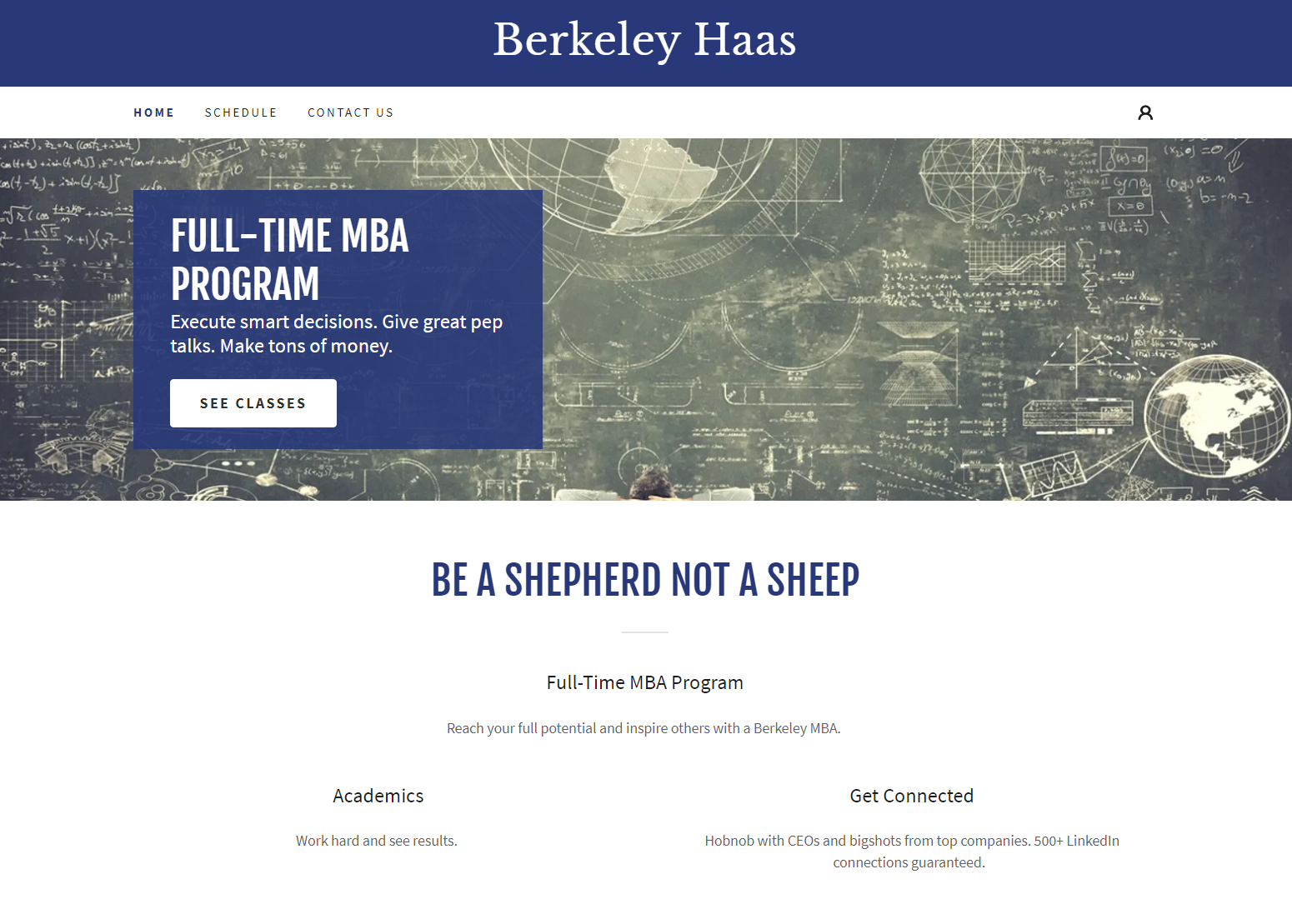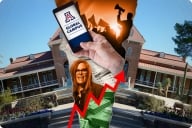You have /5 articles left.
Sign up for a free account or log in.

Istockphoto.com/Bet_Noire
Most U.S. university websites have ended in “.edu” since the dawn of the internet, but in recent years the number of domain name options has exploded.
New extensions such as “.university,” “.college,” “.degree” and “.education” present an opportunity to modernize the online branding of higher education institutions that, in many cases, selected their web address in the '80s and '90s. But it’s an opportunity few institutions have embraced, said Bob Brock, president of the Educational Marketing Group.
Many institutions are buying these new domain names but aren’t actively using them, said Brock. Colleges are purchasing these addresses simply to protect their brands and prevent third parties from snapping them up.
Many education-related domain names can be purchased for less than $20 a year, though prices vary widely. The expense and administrative burden can quickly start to add up for institutions the more web addresses they buy, said Brock. The domain name www.stanford.degree was available for around $66 a year on Tuesday afternoon, while www.yale.mba was being offered for $30,000.
Which domains institutions should buy or not is a tricky question, said Liz Gross, founder and CEO of Campus Sonar, a company that develops social media strategies for higher education institutions. Taking some preventative measures to protect your institution’s reputation is sensible. "When the .sucks domain name came out a few years ago, the easiest way for many brands to deal with it was to buy it," she said.
Even wealthy, elite institutions that are very protective of their brands can sometimes miss opportunities to prevent pranksters from co-opting their name -- this week Inside Higher Ed purchased www.harvarduniversity.wtf for just $5.17, including tax.
 While it’s unlikely any prospective student would mistake a “.wtf” website for a genuine university website, many more legitimate-sounding names are readily available. Inside Higher Ed purchased www.berkeley.mba for $19.99. Using free website design templates, it’s possible to create something that might pass as authentic in minutes.
While it’s unlikely any prospective student would mistake a “.wtf” website for a genuine university website, many more legitimate-sounding names are readily available. Inside Higher Ed purchased www.berkeley.mba for $19.99. Using free website design templates, it’s possible to create something that might pass as authentic in minutes.
Bill Pearce, chief marketing officer and assistant dean for marketing and communications at the University of California, Berkeley’s Haas School of Business, said the school had purchased some domain names but noted, “We have to draw the line somewhere.”
“Copyright laws help clarify what’s Berkeley and what’s not. We come down hard on any other site offering a Berkeley M.B.A. or other degree, or using the Berkeley Haas logo without permission,” he said.
Pearce said the school has previously identified fraudulent websites using their branding.
“We send an immediate cease and desist and will get our campus legal department involved, if necessary,” he said.
Fraudulent websites may initially confuse prospective students, said Pearce. “But any serious applicants would quickly realize they are not on Berkeley Haas’s site.”
“Any time you muddy the waters with limitless options, you make it harder for users to find the information they are looking for,” said Pearce, reflecting on the new domain names. “Qualified educational institutions should confine themselves to the .edu domain to avoid confusion.”
Higher education institutions are not alone in being slow to abandon traditional domain names such as .edu, .com or .org. The Internet Corporation for Assigned Names and Numbers (ICANN) opened up the possibility of companies creating their own branded domain names in 2012. Hundreds of companies, including Nike, Target and Netflix, paid the $185,000 application fee but seemed unsure what to do with their new domain names. In 2016, ICANN threatened to end their .brand agreements if the companies didn’t use them.
Michael Diamond, academic director of the integrated marketing communications department at the New York University School of Professional Studies, agreed it makes sense for higher education institutions to stick with their established .edu websites and “not dilute their brand.”
 Diamond says it’s unlikely that prospective students seriously looking to pursue a four-year degree at a traditional institution would be fooled by a spoof website.
Diamond says it’s unlikely that prospective students seriously looking to pursue a four-year degree at a traditional institution would be fooled by a spoof website.
“A lot of investment goes into the content and web experience of a university website, a fraudulent site isn't going to make that investment," he said.
He is concerned, however, that people pursuing a nontraditional education pathway could be more easily tricked by fraudulent websites. There are plenty of consumer-oriented sites ranking colleges' academic offerings. The same level of information doesn't exist for companies offering unaccredited nondegree credentials and certificates.
While the .edu domain name holds a lot of weight for consumers, it is not guaranteed that every institution using an .edu website is accredited.
Joseph Crook, certification coordinator for private postsecondary education at the State Council of Higher Education for Virginia, has identified several unaccredited institutions using .edu web addresses. Many of these sites are from defunct schools that appear to be “trying to either trick someone into thinking they are one and the same as an accredited institution, or something more nefarious,” he said.
The University of Northern Virginia, for example, a for-profit institution now based in South Dakota, was stripped of its accreditation by the Accrediting Council for Independent Colleges and Schools in 2008. The university still holds its unva.edu web address.
“I do find it concerning that there are unaccredited institutions that are able to use the .edu domain name,” said Crook. He said many prospective students and their parents view the .edu domain as a “quality benchmark” and don’t realize there may be unaccredited institutions using it.
Jim Burnett, director of membership at higher education IT organization Educause, manages the team responsible for approving new .edu web addresses. He explained that prior to 2001, there was no requirement for institutions to be accredited to obtain an .edu website.
According to the terms of an agreement struck by the U.S. Department of Commerce and Educause, all .edu names in existence prior to Oct. 29, 2001, were not impacted by the new eligibility requirements. This “grandfathering” process explains why some companies and unaccredited institutions continue to hold on to their .edu addresses, said Burnett.
There are some companies, such as research-sharing platform Academia.edu, that have been criticized for their use of the .edu domain. But the company registered the web address in 1999 -- before the current criteria were introduced.
Burck Smith, CEO and founder of StraighterLine, a for-profit company offering low-cost pathways to degrees, said he felt it was important his company used a .com web address to make clear it is not a university. Using .org or another domain name associated with education could confuse consumers, he said. “We didn’t want to be deceptive.”








